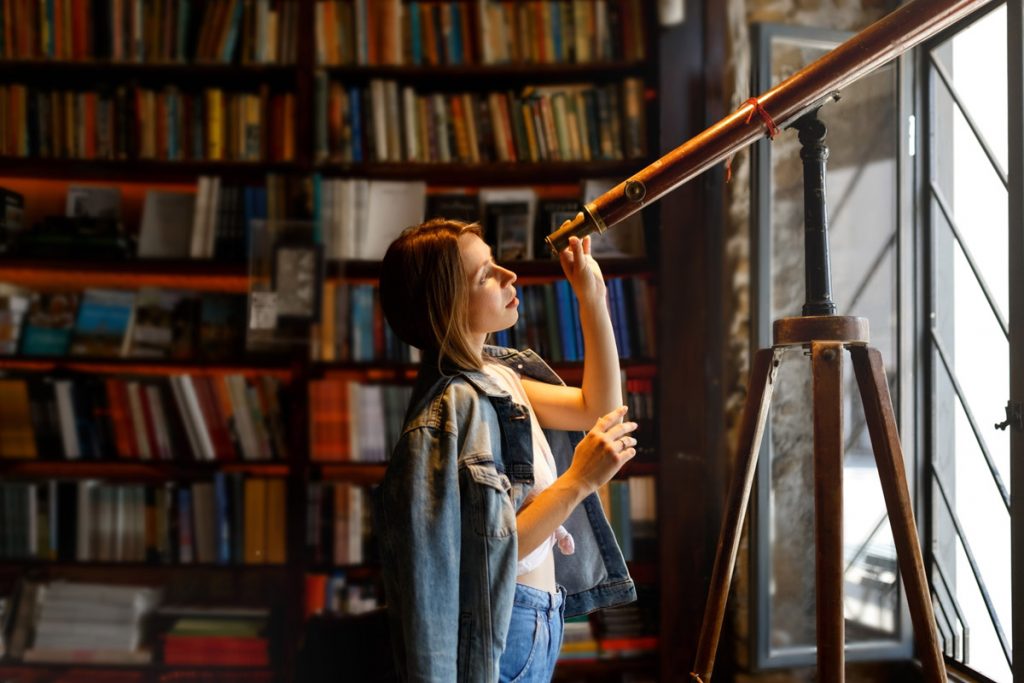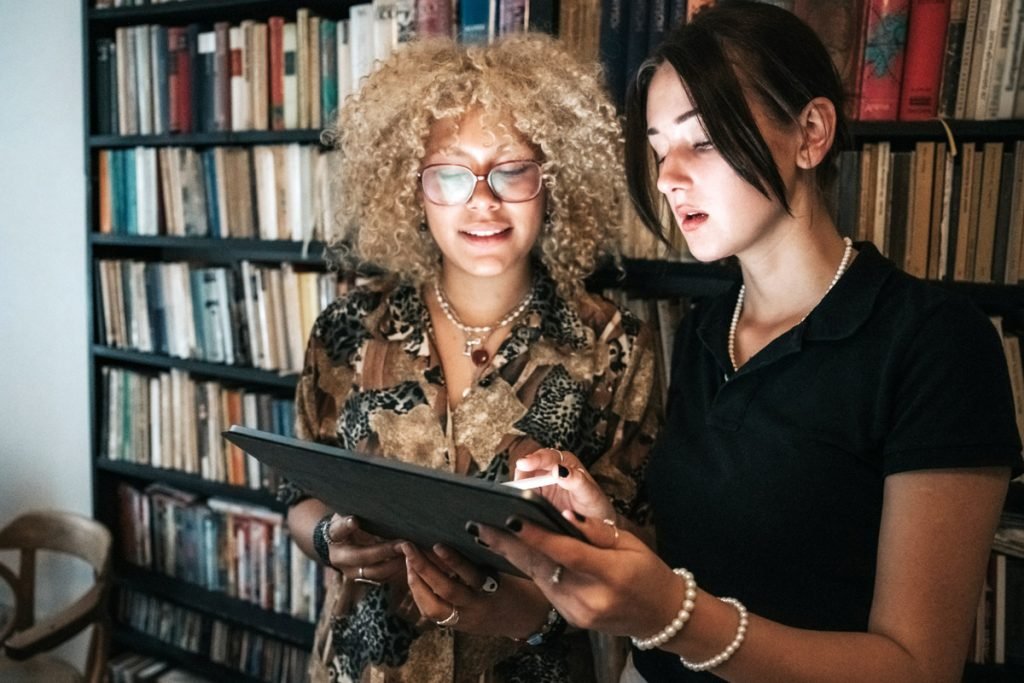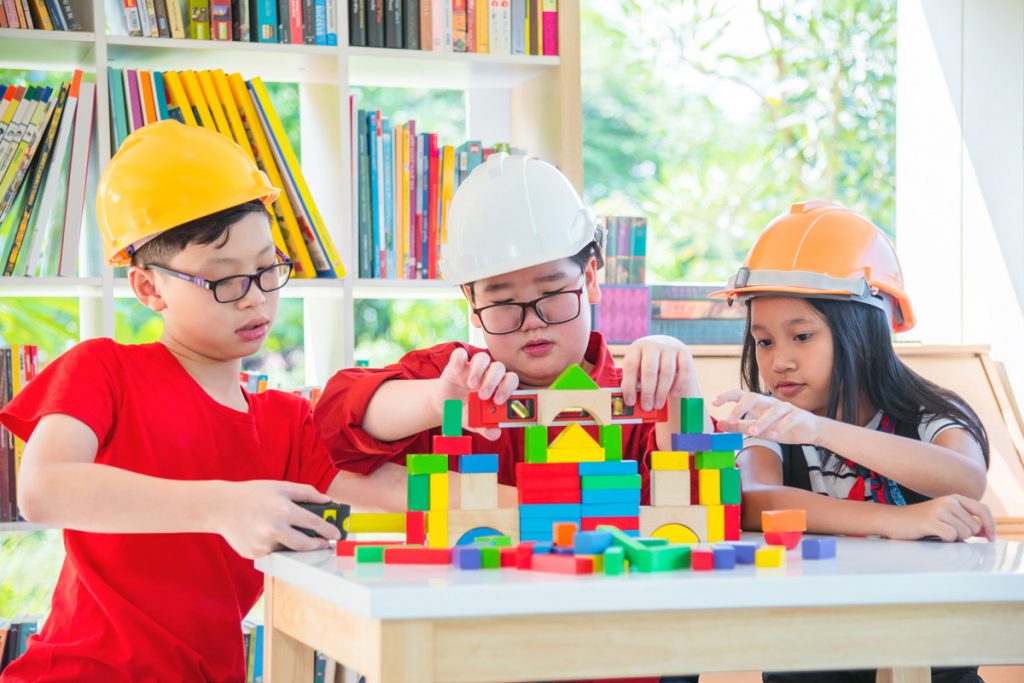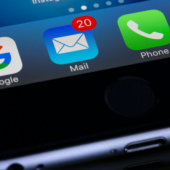by Veronica Matthews
Contributor
Gone are the days of staid book-filled libraries. Sure, the book thing is still a theme, but public libraries are so much more than just books.
Libraries aim to improve access to information and provide education for everyone in their community. Book learnin’ on how to become a carpenter or play the guitar can only take you so far. To truly master these crafts, you need tools and instruments.
Most public libraries offer a “Library of Things” collection which can include anything from household items to electronics and toys. Sometimes, branches come up with fun titles for their “things” collections — like Clearwater Public Library in Florida where the collection is affectionately called “Thing-a-ma-brary.”
The best part? With a library card, you can check out these useful items for free. By the way, if you haven’t been to a library in a while, the card is free, too, in most communities.
Library budgets vary widely and branches tend to cater to the needs of their community, so your local branch might not have each of the items on this list.
Call ahead or check the branch catalog to see what they offer.
20 Weird Things You Can Check Out From Public Libraries
Check out these unusual things you may be able to borrow from your public library.
Entertainment
The price of keeping yourself and the family entertained can add up quickly. Look to your local branch for free things to do.
1. Passes to Museums and Zoos
Many public libraries circulate free passes to local museums, zoos, state parks and other activities. These often cover the whole family, and some require a child under 18 to be part of your group.
Libraries that offer museum passes often have a limited number available and lend them on a first come, first served basis. It might be tough to snag one, especially during school vacations and over the summer.
2. Board Games
Can’t wait to try that popular new board game but don’t want to pay $15 or more? Check it out from your local library.
Temporarily checking out a board game means you can keep game night fresh without breaking the bank. Also, you get to try out new games without a commitment. If a new game doesn’t turn into a fan favorite, you haven’t lost any money.
Or fine tune your skills with classic games like Scrabble and Monopoly.
3. Video Games
Switch out your weekly trip to GameStop for your local library and save some money on your favorites.
Most libraries offer games for different systems like PlayStation 5, Xbox and Switch. Some even have gaming discs for VR systems.
4. Puzzles
Your ongoing puzzle dilemma is solved. The act of piecing them together is so soothing, it can be downright therapeutic.
But once you’ve finally completed it, you have this puzzle that will probably gather dust on a shelf. And you will have spent between $11 and $20.
So check out a puzzle from the library instead and hold onto your hard earned cash.
Toys
Toys for kids are expensive. Especially those that are highly sought after or brand name. The library can help you there.
5. American Girl Dolls
Can’t fathom spending more than $100 on a doll? See if you can borrow one from your public library.
Though this isn’t a common item, the few public library programs across the United States that lend dolls to young patrons are extremely popular and limit the rentals to one week. Some even include a journal, so you can see where else the doll has been.
The Arlington Public Library in Virginia has an American Girl Lending Program. You can also borrow a doll from East Village branch library in New York, the Allegheny County Library Association in Pennsylvania and the Andover Public Library in Kansas.
Some of the dolls arrived at their temporary library homes via private donations, and the American Girl company donated others.
6. Legos
What makes Legos great? The act of building them enhances all sorts of cognitive function. What makes them not so great? The price.
Provide your kids all the benefits of assembling these pricey fun-packed toys without the cost.
Educational
Budding engineers, musicians or scientists who don’t want to drop hundreds of dollars on instruments and tools can sometimes borrow them from a local public library.

7. Telescopes, Microscopes and Binoculars
Many libraries lend science tools such as microscopes, binoculars, meters, globes and even human and animal skeletons.
“Sometimes you need tools in order to do cool science projects,” Celeste Choate, the Ann Arbor, Michigan, associate director for services, collections and access told USA Today when the library began to circulate science tools. “Not everybody can afford a pH meter.”
8. Musical Instruments
Libraries lend all sorts of instruments to patrons, from banjos to guitars to electric keyboards and more.
The Ann Arbor Library circulates a comprehensive and unusual collection of musical instruments, which includes an LSDJ Game Boy (a modified Game Boy that makes music), Otamatones (a Japanese instrument that’s nearly impossible to explain) and Boomwhackers (percussionists will love ‘em).
Some libraries, like the Seattle Public Library, have music practice rooms you can reserve. Make all the noise you want as you learn to play!
Alaska’s libraries take educational material to the next level. You can check out furs, skulls and taxidermied animals through a partnership with fish and game.
Home and Auto
When you want to complete a DIY project or prepare a new dish and you need that one tool or appliance with a hefty price tag that you’ll never use again — borrow it from the library instead.
9. Hammers, Drills and Rakes
Many libraries have a few basic tools on hand. Others, like the Oakland Public Library, have more than 5,000 tools, books and how-to videos and DVDs available to borrow.
Tool lending libraries also extend beyond public libraries.
Dedicated tool libraries in New Orleans and Portland, Maine, lend or rent tools. Use this map of tool lending libraries to find one near you.
10. Cake Pans
What if you could bake a Darth Vader, Elmo or T-rex cake for a special occasion without buying the pan? A lot of libraries have extensive cake pan collections. This one is more common than you’d think!
Here are just a few libraries that lend cake pans:
If you’ve got a theme party coming up, it’s worth a call to your local public library to see if it has a collection you can borrow from.
11. Air Fryers
Yep, that’s right. Possibly the most unusual item on the list, but some libraries offer air fryers on loan.
We love this idea, especially if you’re on the fence about purchasing an air fryer and you want to give it a test run. See if you and your family will actually use the appliance before sinking those dollars.
Just be sure to return it clean. Your friendly librarian will thank you.
12. Jumper Cables
How often do you need jumper cables? Instead of buying a set when you do need a jumpstart, check them out from the library and save yourself the cash.
Of course, you’ll need to get to the library first.
Recreation and Wellness
Get out and try a new sport or achieve your fitness goals, all thanks to the library.
13. Disc Golf
With over 6,000 disc golf courses in the U.S., playing this sport is an inexpensive way to spend an afternoon. But in order to play, you need a set of accessories.
Your local library has you covered.
14. Bike Locks
Bike locks are relatively inexpensive and easily purchased in stores like Walmart or Lowe’s. Still, it’s good to know the library offers bike lock loans in case you find yourself in need of one and don’t want to pay between $5 and $12.
And with bike theft an ever present concern, your library is looking out for your two wheeler.
15. Pedometers
Community health organizations or health-care companies often donate pedometers to libraries to encourage participation in their health and wellness initiatives. See if your library is one of them.
While you’re at it, check your library’s audiobook database, so you can listen while you log your steps.
Many public libraries partner with a company called Overdrive to offer audiobooks you can download to your iPhone, Android or another MP3 device. They magically disappear when the rental period ends.
Your library may be the only place to find free audiobooks but it isn’t the only place to find cheap audiobooks.
Technology and Electronics
Most of us depend on some of the items below, for better or worse — and the library is a great resource for these pricey necessities.
16. Wi-Fi Hotspots
Cutting out internet can help you save significantly on monthly expenses.
But if you work from home or are on the job hunt, it’s not easy to go without. While most libraries have public computers, you’re limited to using them during the hours the library’s open.
That’s why some libraries have come up with a way to lend internet access to patrons.
The New York Public Library allows patrons without home internet to check out Wi-Fi hotspots for six months. (Keep in mind this program is intended for patrons who can’t afford internet, not those who don’t feel like paying for it.)
Other libraries — including those in Chicago and Seattle — lend Wi-Fi hotspots for three-week periods.

17. Tablet Computers
You can save a substantial amount of money by checking out a tablet at your local library.
If you need fresh tech for a project or for your kids to use at home, borrow a tablet and enjoy the lightweight portability without the price.
18. 3D Printing Pens
3D pens aren’t just a fun and educational toy for kids, they can also be useful tools for all sorts of creative or functional projects for adults.
Like a hot glue gun elevated to a whole new level, check out a 3D pen from your library to create anything your imagination can drum up.
Hundreds of libraries have 3D printers that can be used in the library, like at the Highland Park Public Library in Illinois.
Crafts
We know how tempting the craft store can be. Be tempted at the library instead, and skip the financial consequence.
19. Rubber Stamps
Durable and used for a wide variety of arts and crafts projects, rubber stamps are a “Library of Things” staple. Similar to emojis, but transferable to multiple surfaces, libraries offer stamps in the shape of the alphabet, of course, but also animals and flowers, etc.
So when you need tangible emojis for a decorating project, head to the library instead of the craft store.
20. Sewing Patterns
Sewing patterns for clothes or soft toys can run anywhere from $16 to $30 each. That might not be a smart investment, especially if you only use the pattern once.
But if you have a sewing machine at home, you can borrow patterns from the library and stitch up a wardrobe for yourself or fun new toys for the kids.
Tips for Checking Out
- Get a library card. If you don’t have a library card, you won’t have access to any of these items. Get one!
- Know the rules. “Thing-a-ma-brary” items and the rules that go along with checking them out may vary from library to library, so be sure to find out what your library offers.
- Place a hold. Also keep in mind many of these bizarre collections are popular — the library wouldn’t offer them if there weren’t a demand. So check with your library to see if you can place a hold or get your name on a waiting list.
- Practice patience. Even when you do reserve materials, be prepared to wait awhile. That waiting list could be months long.
- Be the early bird. Some libraries don’t allow holds on popular items. So the best way to snag that sought-after museum pass is to be the first in line when the library opens.
- Return items on time. Lastly, nothing from the library is truly free if you don’t return it on time. The fines for these overdue items may be much heftier than those for returning a book or DVD a day late. Double-check the rental period — which is often different from that for books — and be sure to return everything on time.
Contributor Veronica Leone Matthews is a North Carolina-based freelance writer with 11 years of experience writing for non-profits and higher education. She covers lifestyle topics for The Penny Hoarder. Reporting from Betsy Mikel is included in this report.
Gone are the days of staid book-filled libraries. Sure, the book thing is still a theme, but public libraries are so much more than just books.
Libraries aim to improve access to information and provide education for everyone in their community. Book learnin’ on how to become a carpenter or play the guitar can only take you so far. To truly master these crafts, you need tools and instruments.
Most public libraries offer a “Library of Things” collection which can include anything from household items to electronics and toys. Sometimes, branches come up with fun titles for their “things” collections — like Clearwater Public Library in Florida where the collection is affectionately called “Thing-a-ma-brary.”
The best part? With a library card, you can check out these useful items for free. By the way, if you haven’t been to a library in a while, the card is free, too, in most communities.
Library budgets vary widely and branches tend to cater to the needs of their community, so your local branch might not have each of the items on this list.
Call ahead or check the branch catalog to see what they offer.
Check out these unusual things you may be able to borrow from your public library.
The price of keeping yourself and the family entertained can add up quickly. Look to your local branch for free things to do.
Many public libraries circulate free passes to local museums, zoos, state parks and other activities. These often cover the whole family, and some require a child under 18 to be part of your group.
Libraries that offer museum passes often have a limited number available and lend them on a first come, first served basis. It might be tough to snag one, especially during school vacations and over the summer.
Can’t wait to try that popular new board game but don’t want to pay $15 or more? Check it out from your local library.
Temporarily checking out a board game means you can keep game night fresh without breaking the bank. Also, you get to try out new games without a commitment. If a new game doesn’t turn into a fan favorite, you haven’t lost any money.
Or fine tune your skills with classic games like Scrabble and Monopoly.
Switch out your weekly trip to GameStop for your local library and save some money on your favorites.
Most libraries offer games for different systems like PlayStation 5, Xbox and Switch. Some even have gaming discs for VR systems.
Your ongoing puzzle dilemma is solved. The act of piecing them together is so soothing, it can be downright therapeutic.
But once you’ve finally completed it, you have this puzzle that will probably gather dust on a shelf. And you will have spent between $11 and $20.
So check out a puzzle from the library instead and hold onto your hard earned cash.
Toys for kids are expensive. Especially those that are highly sought after or brand name. The library can help you there.
Can’t fathom spending more than $100 on a doll? See if you can borrow one from your public library.
Though this isn’t a common item, the few public library programs across the United States that lend dolls to young patrons are extremely popular and limit the rentals to one week. Some even include a journal, so you can see where else the doll has been.
The Arlington Public Library in Virginia has an American Girl Lending Program. You can also borrow a doll from East Village branch library in New York, the Allegheny County Library Association in Pennsylvania and the Andover Public Library in Kansas.
Some of the dolls arrived at their temporary library homes via private donations, and the American Girl company donated others.
What makes Legos great? The act of building them enhances all sorts of cognitive function. What makes them not so great? The price.
Provide your kids all the benefits of assembling these pricey fun-packed toys without the cost.
Budding engineers, musicians or scientists who don’t want to drop hundreds of dollars on instruments and tools can sometimes borrow them from a local public library.
Many libraries lend science tools such as microscopes, binoculars, meters, globes and even human and animal skeletons.
“Sometimes you need tools in order to do cool science projects,” Celeste Choate, the Ann Arbor, Michigan, associate director for services, collections and access told USA Today when the library began to circulate science tools. “Not everybody can afford a pH meter.”
Libraries lend all sorts of instruments to patrons, from banjos to guitars to electric keyboards and more.
The Ann Arbor Library circulates a comprehensive and unusual collection of musical instruments, which includes an LSDJ Game Boy (a modified Game Boy that makes music), Otamatones (a Japanese instrument that’s nearly impossible to explain) and Boomwhackers (percussionists will love ‘em).
Some libraries, like the Seattle Public Library, have music practice rooms you can reserve. Make all the noise you want as you learn to play!
Alaska’s libraries take educational material to the next level. You can check out furs, skulls and taxidermied animals through a partnership with fish and game.
When you want to complete a DIY project or prepare a new dish and you need that one tool or appliance with a hefty price tag that you’ll never use again — borrow it from the library instead.
Many libraries have a few basic tools on hand. Others, like the Oakland Public Library, have more than 5,000 tools, books and how-to videos and DVDs available to borrow.
Tool lending libraries also extend beyond public libraries.
Dedicated tool libraries in New Orleans and Portland, Maine, lend or rent tools. Use this map of tool lending libraries to find one near you.
What if you could bake a Darth Vader, Elmo or T-rex cake for a special occasion without buying the pan? A lot of libraries have extensive cake pan collections. This one is more common than you’d think!
Here are just a few libraries that lend cake pans:
If you’ve got a theme party coming up, it’s worth a call to your local public library to see if it has a collection you can borrow from.
Yep, that’s right. Possibly the most unusual item on the list, but some libraries offer air fryers on loan.
We love this idea, especially if you’re on the fence about purchasing an air fryer and you want to give it a test run. See if you and your family will actually use the appliance before sinking those dollars.
Just be sure to return it clean. Your friendly librarian will thank you.
How often do you need jumper cables? Instead of buying a set when you do need a jumpstart, check them out from the library and save yourself the cash.
Of course, you’ll need to get to the library first.
Get out and try a new sport or achieve your fitness goals, all thanks to the library.
With over 6,000 disc golf courses in the U.S., playing this sport is an inexpensive way to spend an afternoon. But in order to play, you need a set of accessories.
Your local library has you covered.
Bike locks are relatively inexpensive and easily purchased in stores like Walmart or Lowe’s. Still, it’s good to know the library offers bike lock loans in case you find yourself in need of one and don’t want to pay between $5 and $12.
And with bike theft an ever present concern, your library is looking out for your two wheeler.
Community health organizations or health-care companies often donate pedometers to libraries to encourage participation in their health and wellness initiatives. See if your library is one of them.
While you’re at it, check your library’s audiobook database, so you can listen while you log your steps.
Many public libraries partner with a company called Overdrive to offer audiobooks you can download to your iPhone, Android or another MP3 device. They magically disappear when the rental period ends.
Your library may be the only place to find free audiobooks but it isn’t the only place to find cheap audiobooks.
Most of us depend on some of the items below, for better or worse — and the library is a great resource for these pricey necessities.
Cutting out internet can help you save significantly on monthly expenses.
But if you work from home or are on the job hunt, it’s not easy to go without. While most libraries have public computers, you’re limited to using them during the hours the library’s open.
That’s why some libraries have come up with a way to lend internet access to patrons.
The New York Public Library allows patrons without home internet to check out Wi-Fi hotspots for six months. (Keep in mind this program is intended for patrons who can’t afford internet, not those who don’t feel like paying for it.)
Other libraries — including those in Chicago and Seattle — lend Wi-Fi hotspots for three-week periods.
You can save a substantial amount of money by checking out a tablet at your local library.
If you need fresh tech for a project or for your kids to use at home, borrow a tablet and enjoy the lightweight portability without the price.
3D pens aren’t just a fun and educational toy for kids, they can also be useful tools for all sorts of creative or functional projects for adults.
Like a hot glue gun elevated to a whole new level, check out a 3D pen from your library to create anything your imagination can drum up.
Hundreds of libraries have 3D printers that can be used in the library, like at the Highland Park Public Library in Illinois.
We know how tempting the craft store can be. Be tempted at the library instead, and skip the financial consequence.
Durable and used for a wide variety of arts and crafts projects, rubber stamps are a “Library of Things” staple. Similar to emojis, but transferable to multiple surfaces, libraries offer stamps in the shape of the alphabet, of course, but also animals and flowers, etc.
So when you need tangible emojis for a decorating project, head to the library instead of the craft store.
Sewing patterns for clothes or soft toys can run anywhere from $16 to $30 each. That might not be a smart investment, especially if you only use the pattern once.
But if you have a sewing machine at home, you can borrow patterns from the library and stitch up a wardrobe for yourself or fun new toys for the kids.
Contributor Veronica Leone Matthews is a North Carolina-based freelance writer with 11 years of experience writing for non-profits and higher education. She covers lifestyle topics for The Penny Hoarder. Reporting from Betsy Mikel is included in this report.
Ready to stop worrying about money?
Get the Penny Hoarder Daily
Privacy Policy
© 2022 The Penny Hoarder. – All rights reserved.
Privacy Policy and Terms of Service | Do Not Sell My Personal Information | Cookies Settings






